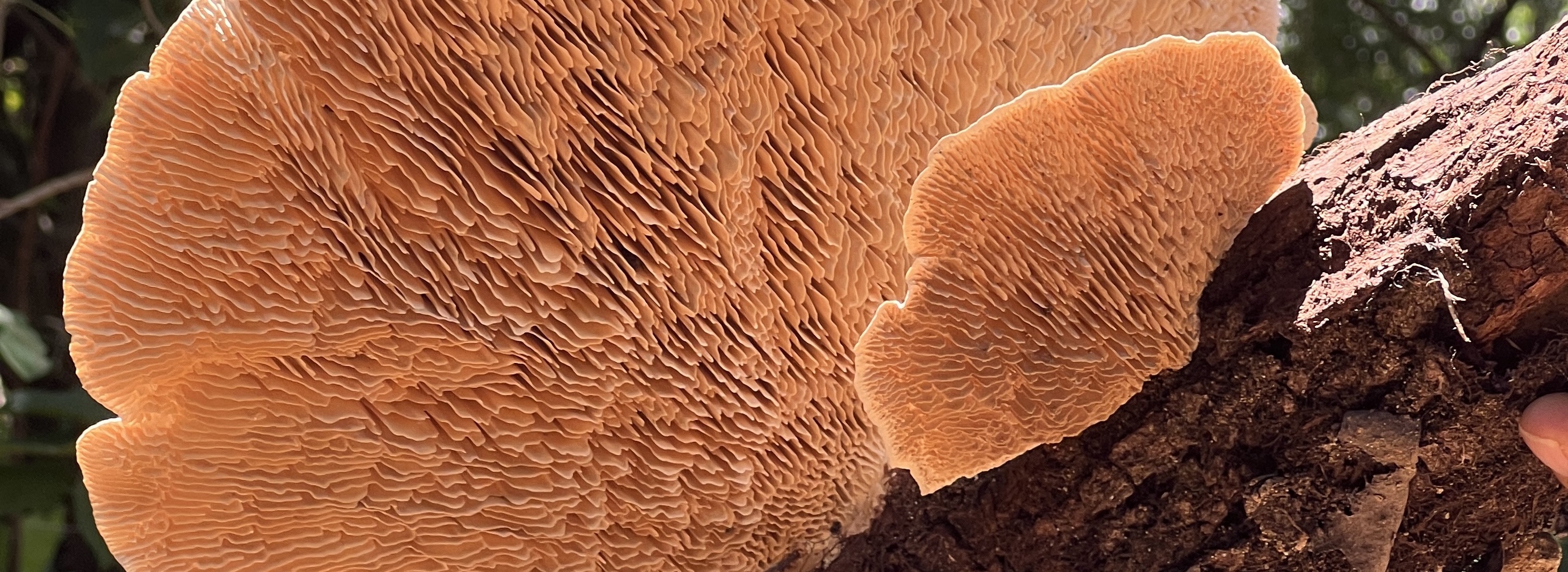
Monteverde Institute: Tropical Ecology and Conservation
Alternative Title
Impacto de recompensa en los mimetismos florales Lantana cámara (Verbenaceae) y Epidendrum radicans (Orchidaceae)
Files
Download Full Text (143 KB)
Publication Date
November 2008
Abstract
The fitness of a non-rewarding plant species can be increased by the addition of another plant species with similar flowers and reward present if pollinators are unable to distinguish between the two species (Bierzychudek 1981). Floral mimicry occurs between species when three ecological conditions are met: the model and mimic species must coexist within flight range of an individual pollinator, plant species must share pollinator species, and pollinator individuals visiting one plant must also visit one or both of the other plant species (Bierzychudek 1981). Non-rewarding Epidendrum radicans (Orchidaceae) has been shown to be a Batesian mimic of rewarding Lantana camara (Verbenaceae). Although mimicry increases the fitness of Batesian species when plants are in close proximity, mixed patches are widely spaced, and patch sizes are small (Deacon 2000; Woo 2001), there is little known about floral reward’s affect on the relationship. This study uses L. camara and E. radicans to test the impact of increased reward availability in model plants (L. camara) on pollinator visitation rates to both model and mimic plants. Two observation plots were constructed containing L. camara and E. radicans, where L. camara flowers in one plot were injected with a 20% sucrose solution. Plots were observed for butterfly visitation rates and monitored for pollinia removal from E. radicans. Increased reward in L. camara resulted in fewer visits to E. radicans flowers and L. camara inflorescences within the treated patch (three-way ANOVA: F = 24.0506; df = 1; P < .0001). In addition, L. camara inflorescences were visited longer with increased reward present (three-way ANOVA: F = 5.88; df = 1; P < .05). However, no difference was observed between pollinia removal between patches (Chi-square = 3; df = 1; P > .05). Different butterfly species had varying rates of visitation to the mimic species in response to an increased reward. Danaus plexippus visited 0.75 fewer E. radicans flowers, Leptophobia aripa visited 0.184 more flowers, and Anartia fatima visited 0.039 fewer E. radicans flowers (two-way ANOVA: F = 3.7887; df = 2; P < .05). As a result of increased reward, model and mimic species are negatively affected, due to a decrease in pollinator visitation rates. Prior research suggested rewarding flowers benefit most from being in close proximity to one another, in clumped patches (Deacon 2000). The results of this study suggest that L. camara may have been selected to produce a reward that favors a large number of visits to many flowers, which benefits the mimic as well. Although mimic flowers were visited, there was no affect on the pollinia removal from E. radicans, suggesting that patch size and density ultimately affect pollination rates of deceptive plants.
Resumen
El éxito reproductivo de una planta que no ofrece ninguna recompensa al agregarle una planta con flores similares y esta recompensa al presente si los polinizadores son incapaces de distinguir entre las dos especies. La planta que no ofrece recompensa Epidendrum radicans (Orchidaceae) es mimética de la especie Lantana camara (Verbenaceae), que si ofrece una recompensa. Este estudio utiliza L. camara y E. radicans para demostrar el impacto de un aumento en la disponibilidad de una recompensa en las plantas modelo (L. camara), en proporciones de visitas de polinizadores tanto a la planta modelo como a la mimética.
Keywords
Orchids, Pollination by insects, Butterflies, CIEE Fall 2008
Palabras claves
Orquídeas, Polinizado por insectos, Mariposas, CIEE Otoño 2008
Extent
11 pages
Geographic Location
Monteverde (Puntarenas, Costa Rica); Cañitas (Guanacaste, Costa Rica)
Holding Location
Monteverde Institute
Language
English; Spanish
Media Type
Articles
Format
Digital Only
Identifier
M39-00492
Type
Book
Recommended Citation
Zwickey, Kara, "Impact of reward on floral mimics Lantana camara (Verbenaceae) and Epidendrum radicans (Orchidaceae), November 2008" (2008). Monteverde Institute: Tropical Ecology and Conservation. 263.
https://digitalcommons.usf.edu/tropical_ecology/263


